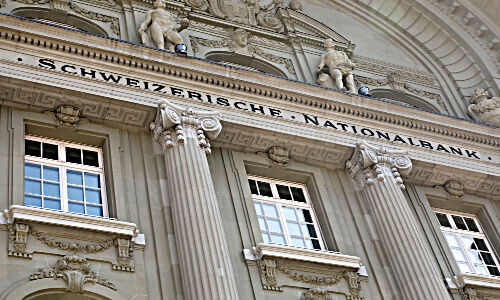A group of economists said that even after posting a record loss last year, the Swiss National Bank could still have distributed money to the federal government and Cantons.
The Swiss National Bank (SNB) last week reported a record loss of 132 billion Swiss francs ($142 billion) for the year 2022, with losses on its currency positions of around 131 billion. This prompted the central bank to omit a profit distribution to the federal government and the Cantons which in 2021 was the maximum allowed 6 billion francs.
Despite the loss, economists at The SNB Observatory wrote in an analysis Thursday that the SNB still had the means to make the maximum distribution for 2022. Instead, the central bank opted to increase its provisions for foreign investments which were worth 95.7 billion before appropriation for the losses, by 9.6 billion francs, in line with its policy of increasing provisions by 10 percent annually.
No Financial Logic
Since the SNB did not use the 95.7 billion to help absorb the 132 billion currency loss, and «since these provisions are evidently not loss-absorbing, one wonders what their purpose is,» the economists write. They go on to say there is no economic or financial logic for such a policy, and the SNB has never justified it.
That leaves the remaining equity left to absorb the 132 billion losses and the 9.6 billion increase in the provisions for foreign investments. The total of 142 billion is to be withdrawn from the distribution reserve, which will decline from about 102 billion at the end of 2021 to -39 billion at the end of 2022.
Distribution Still Possible
Thanks to very large profits in recent years SNB’s equity increased. Even after the losses of 2022, equity was still 66 billion. So «distributing even the maximum amount of 6 billion would be possible,» further illustrating the shortcomings of the procedure used to determine profit distributions, according to the economists.
The decision to allocate the losses to the distribution reserves also makes it unlikely the SNB will distribute any profits next year either. UBS economists reached a similar conclusion and said that under the current policy, it would have to generate a profit next year of over 50 billion francs to make up for the shortfall in the distribution reserves
Closer to the Country's Overall Interest
The SNB Observatory economists concluded while the overall policy of the SNB was excellent, noting the central bank acted early against inflationary pressures, its distribution policy was not.
«It would be desirable for the SNB to steer toward a path closer to the country's overall interest in the area of profit distribution as well,» they concluded.
The SNB Observatory consists of Stefan Gerlach chief economist at EFG, Yvan Lengwiler professor of economics at the University of Basel, and Charles Wyplosz professor emeritus of economics at The Graduate Institute, Geneva.



































